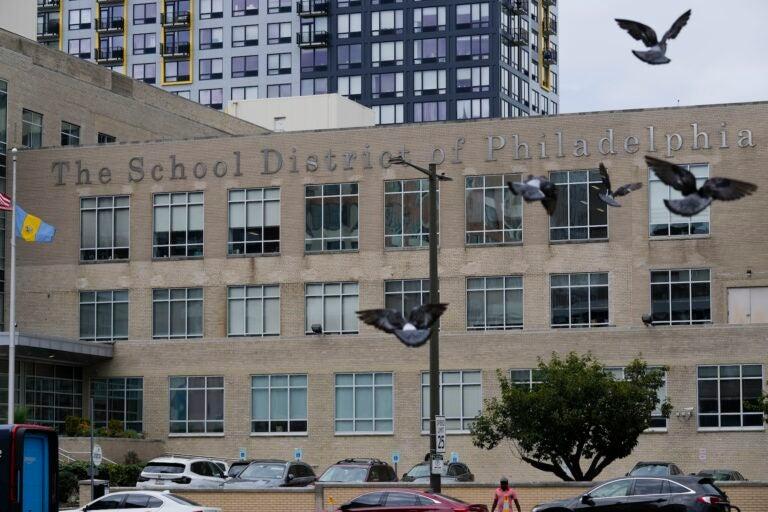Philadelphia’s Education System Grapples with Budget Cuts: Impacts and Community Responses
Budget Reductions Jeopardize Student Support and Staff Continuity in Philadelphia Schools
Philadelphia’s public education network is currently navigating a precarious situation as recent funding cuts severely disrupt vital student support services. City education officials describe these financial constraints as catalysts for significant upheaval, threatening programs that nurture both academic success and emotional health. Essential services such as mental health counseling, special education support, and extracurricular activities are being curtailed, leaving many students without the resources they need to excel. Compounding these challenges are staff layoffs and hiring freezes, which undermine the experienced workforce critical to maintaining daily school operations.
The repercussions extend beyond individual classrooms, endangering the entire educational infrastructure that sustains Philadelphia’s schools. Key issues highlighted by administrators include:
- Growing class sizes that limit personalized instruction
- Interrupted student development due to fewer available specialists
- Elevated staff turnover, risking loss of expertise and mentorship
Without prompt restoration of funding, officials warn that schools may face a period of disarray marked by fragmented services and declining student achievement. The table below outlines the affected services and the scale of reductions:
| Service | Effect of Cuts | Approximate Reduction |
|---|---|---|
| Mental Health Counseling | Reduced sessions per student, longer waitlists | 30% |
| Special Education Support | Less in-class assistance, increased teacher burden | 25% |
| After-School Activities | Program eliminations, lower student participation | 40% |
| Staffing Levels | Hiring freezes and layoffs causing instability | 20% |
Classroom Resources and Learning Atmosphere Under Strain, Say School Leaders
Philadelphia’s school administrators are raising urgent concerns about how budget cuts are eroding classroom resources and the overall learning environment. District officials report that these financial constraints limit access to necessary supplies, technology upgrades, and support personnel, all of which are fundamental to delivering quality education. Teachers are increasingly forced to improvise due to shortages, while students contend with larger classes and reduced availability of specialized learning tools.
The consequences ripple through several critical areas:
- Resource scarcity: Deficits in textbooks, lab materials, and other educational tools hinder effective teaching.
- Increased demands on teachers: With fewer aides, educators face more administrative duties and less time for individualized instruction.
- Lower student motivation: A less engaging classroom environment contributes to diminished academic enthusiasm and performance.
| Area of Impact | Pre-Cut Status | Post-Cut Status |
|---|---|---|
| Classroom Materials | Sufficient | Inadequate |
| Technology Access | Broad availability | Restricted access |
| Student-Teacher Ratio | 20:1 | 30:1 |
| Support Personnel | Comprehensive | Reduced |
Urgent Appeals for Enhanced Funding to Preserve Educational Fairness and Excellence
Educators and community advocates throughout Philadelphia are calling for immediate increases in school funding to halt the destabilization of the public education system. They emphasize that the current budget cuts have critically impaired the ability to sustain key programs, support services, and infrastructure, thereby threatening equitable access to quality education for thousands of students. The resulting strain manifests in overcrowded classrooms, depleted resources, and diminished mental health support, disproportionately impacting marginalized and vulnerable student groups.
Proposed strategies to reverse these trends focus on comprehensive investments, including:
- Expansion of tutoring and extracurricular programs to address learning deficits exacerbated by the COVID-19 pandemic.
- Modernization of technology and digital infrastructure to guarantee equitable access to hybrid and remote learning platforms.
- Enhanced professional development and retention efforts aimed at mitigating teacher shortages and improving instructional quality.
| Investment Focus | Current Challenge | Expected Outcome |
|---|---|---|
| After-School Programs | Low student participation | 30% increase in attendance |
| Technology Provision | Unequal access to devices | Universal device availability |
| Teacher Support | High attrition rates | 25% improvement in retention |
Community Advocates Push for Joint Efforts to Overcome Funding Deficits
Philadelphia’s community leaders are mobilizing to address the escalating crisis caused by drastic education budget cuts. They caution that these financial reductions disproportionately impact under-resourced schools, deepening existing disparities. Parents, educators, and civic representatives are urging a collaborative approach that emphasizes transparent budgeting, inclusive planning, and targeted investments to support student achievement and well-being.
Central demands include:
- Greater transparency in fiscal decisions to build community trust.
- Inclusive collaboration among educators, administrators, and local stakeholders.
- Strategic funding directed toward programs critical to student success.
| Focus Area | Identified Problem | Community-Led Solution |
|---|---|---|
| Staffing | Teacher layoffs and shortages | Advocacy campaigns to improve retention |
| Facilities | Deferred maintenance and closures | Volunteer initiatives for repairs |
| Programs | Reduction in arts and extracurricular offerings | Community fundraising and sponsorships |
Conclusion: Navigating Philadelphia’s Educational Funding Crisis
As Philadelphia confronts ongoing fiscal challenges, the warnings from education officials highlight the critical consequences of recent budget cuts. The described “chaos” and “peril” reflect the tangible effects on schools, educators, and students, underscoring the urgent need for thoughtful funding strategies. Moving forward, the collective efforts of city leaders, educators, and community members will be pivotal in restoring stability and ensuring equitable, high-quality education for all Philadelphia students.








